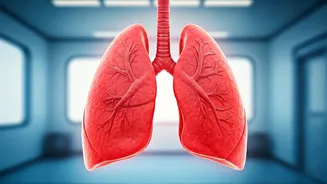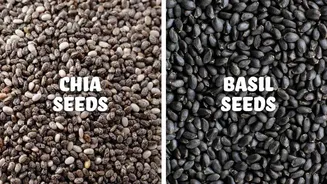The Respiratory System
Our lungs are vital for life, enabling us to breathe and absorb life-giving oxygen. However, various factors, including the foods we eat, can impact their
functionality. The air we breathe and the food we consume both affect our lungs. Foods we choose have a direct impact on our lung health, with certain options containing compounds that can lead to inflammation and irritation within the respiratory system. Therefore, understanding and eliminating these foods from our diets can lead to healthier lungs and a significantly improved quality of life. This proactive approach to nutrition offers a tangible way to enhance your breathing and protect against respiratory ailments. Considering the crucial role lungs play, a well-informed diet is a cornerstone of overall well-being.
Processed Meats
Processed meats, often enjoyed in sandwiches and snacks, can be detrimental to lung health. These meats frequently contain nitrates and nitrites, which are preservatives used to extend shelf life and enhance color. When consumed, these compounds can trigger inflammation in the lungs. Regular intake is associated with an increased risk of chronic obstructive pulmonary disease (COPD), which causes airflow blockage and breathing difficulties. For healthier lungs, consider opting for fresh, unprocessed alternatives like lean poultry or plant-based proteins. Prioritizing foods that promote overall health can help to safeguard the respiratory system. Make informed dietary choices to support your lung's optimal function and prevent potential harm.
Sugary Beverages
Sugary drinks, including sodas and fruit juices, pose a significant threat to lung health. These beverages often contain high fructose corn syrup, which can contribute to chronic inflammation throughout the body. Increased inflammation in the lungs can worsen respiratory conditions such as asthma and increase the risk of lung infections. Regularly consuming sugary drinks is linked to an elevated risk of developing these diseases. Replacing these drinks with water, herbal teas, or unsweetened alternatives can markedly improve your respiratory well-being. Focusing on your daily intake can reduce inflammation and promote healthier lungs. These simple shifts in your beverage choices can make a significant difference in lung health and overall quality of life.
Dairy Products
Dairy products can sometimes affect the respiratory system, specifically when it comes to excessive mucus production. While not all individuals experience this, for those sensitive to dairy, it can exacerbate congestion and trigger respiratory symptoms. Dairy contains casein, a protein that some people find difficult to digest. This indigestion can lead to inflammation and increase mucus in the airways, making breathing harder. If you suspect dairy is affecting your lungs, consider reducing your intake or exploring dairy-free alternatives, such as almond or soy milk. Pay attention to how your body responds to various foods and make adjustments accordingly. The goal is to support lung health by limiting any potential irritants. Remember, everyone's body is different, so listening to its signals is crucial.
Salty Foods
Excessive salt intake can lead to water retention, which puts extra stress on the lungs. High sodium levels can increase blood pressure, which can make it harder for the lungs to function correctly. This can cause shortness of breath and other respiratory issues. Processed foods, fast foods, and salty snacks are all common sources of sodium. Therefore, it is important to check food labels and reduce your intake of these foods. When cooking, you can use herbs and spices to flavor your meals instead of relying on salt. Being mindful of your sodium intake can promote healthy blood pressure and support lung function. A balanced diet, low in excessive salt, is key to maintaining respiratory health and overall well-being.
Refined Grains
Refined grains, such as white bread and pasta, are low in fiber and can contribute to inflammation in the body. This inflammation can negatively impact your lung health, potentially worsening respiratory conditions. These grains are often stripped of their nutrients during processing. This lack of nutrients can result in less-effective bodily functions, including lung health. Swapping refined grains for whole grains, which are high in fiber, can help to reduce inflammation and support overall health. Whole grains provide a slow release of energy, keeping blood sugar levels stable, and promoting optimal bodily function. Consider incorporating foods like brown rice, quinoa, and whole-wheat bread into your diet. These will support your health and strengthen your respiratory system.
Fried Foods
Fried foods are often cooked in unhealthy oils, which can trigger inflammation in the body. This inflammation is a risk to your lungs. Fried foods often contain trans fats and other compounds linked to chronic diseases. Consuming such foods regularly may cause breathing problems. Moreover, the high fat content can hinder your lung's function by contributing to weight gain and placing undue pressure on the respiratory system. Therefore, to protect your lung health, it's beneficial to limit or avoid foods prepared by deep-frying. Opt for healthier cooking methods, such as baking, grilling, or steaming, to keep your lungs healthy and in optimal condition. Making informed food choices can help you breathe easier and maintain a healthy respiratory system.













